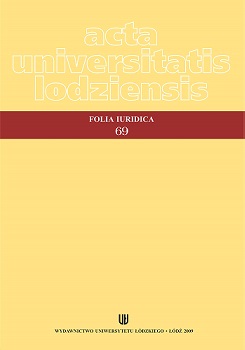Pomiędzy wigami i torysami. Prawo oporu w doktrynie politycznej Davida Hume’a
DOI:
https://doi.org/10.18778/0208-6069.69.07Abstract
David Hume offers a well conceived plan for the formation of government and its political workings. Furthermore, he grants that in special circumstances the citizens of a particular government may revolt, but rejects both tory theory of passive disobedience and whig’s justification of revolution. In this article, the Author argues, that with respect to obedience and disloyalty, Hume gives no formal rules for revolution. Unjustified revolutions are denoted by lack of adherence to established practices and want of a genuine cause.
They are, rather, motivated by speculative factions subject to fanaticism and enthusiasm which are the foundations of Hume’s political worries. Author concludes that the Hume expressed suspicion of attempts to radical changes of society. His political scpticism, social theory and the rejection of revolution qualified him as conservative thinker.
Downloads
Downloads
Published
How to Cite
Issue
Section
License

This work is licensed under a Creative Commons Attribution-NonCommercial-NoDerivatives 4.0 International License.














